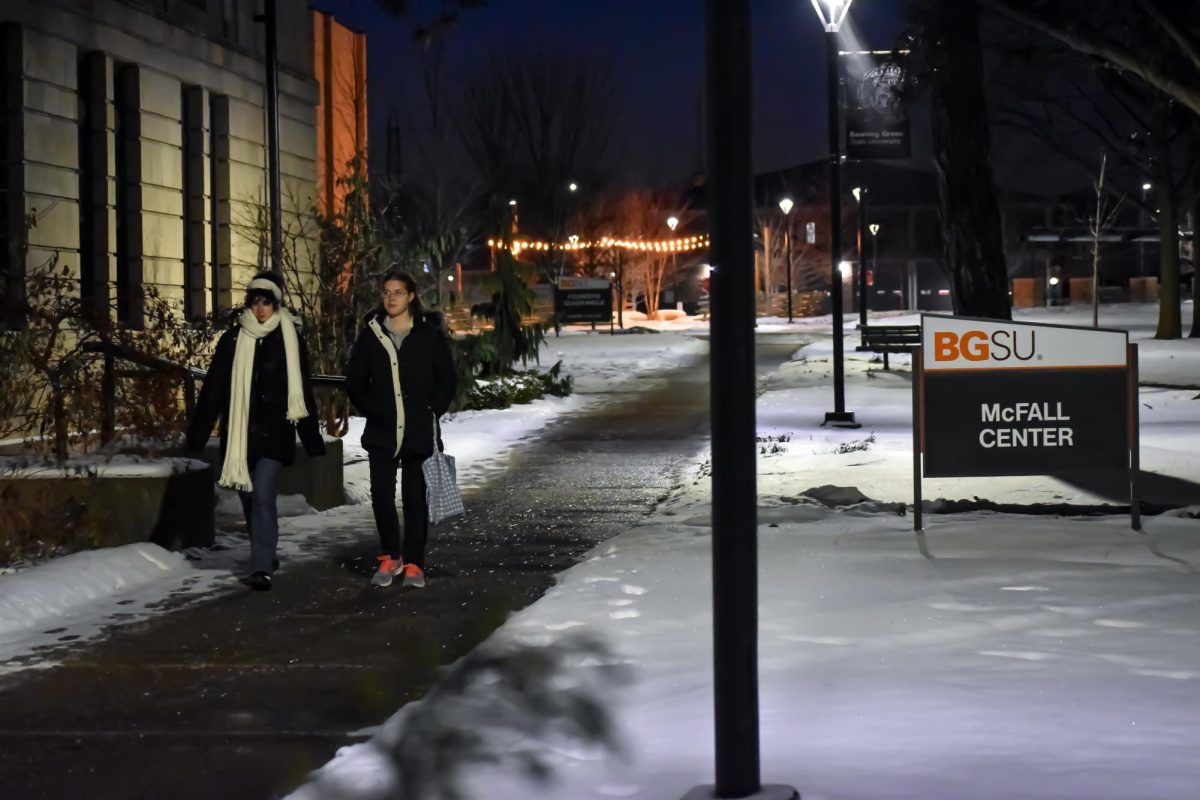In a recent appeal for support from the university, BGSU’s Graduate Labor Organizing Committee issued an open letter to President Rogers and the Board of Trustees, urging immediate policy changes to address financial inequities affecting graduate students. The letter highlights the pressing issues of rising living costs, economic and food insecurity, and the challenges these factors pose to students’ educational pursuits.
BG Falcon Media attempted to make contact with Bowling Green State University for comment; however, BGSU was unable to provide a comment before the publishing date.
What are graduate assistantships?
Graduate assistantships are designed to provide part-time work for graduate students in their field of study. This provides students with professional and applied experience along with financial support.
Graduate students can receive financial assistance in stipends and/or tuition support. Stipends are fixed amounts calculated based on hours worked each week and are subject to taxation.
Students are paid based on either 10 or 20 hours per week; however, students actually work an estimated average of 35 hours of work per week. Stipend levels for assistantships vary by discipline, program and type of assistantship.
Stipend pay rates
BGSU graduate stipend rates fluctuate for master’s and graduate students – according to BGSU’s website, master’s students’ pay scale ranges from $10,800 to $20,000 annually which on average is $900 to $1,666.67 monthly. Doctoral students range from $14,500 to $22,000 annually, which on average is $1,208.33 to $1,833.33 monthly.
According to HealthCare.gov, the federal poverty level for a single individual in 2024 is $15,060 annually, which is defined as a condition in which a person or community lacks the financial resources for a minimum standard of living. In conversations with over 15 students from various graduate-level disciplines, many expressed their concerns about discussing compensation.
“Speaking about pay is something currently under fire right now. The university has made it clear that grad students cannot unionize and have given us stricter guidelines on these subjects,” one graduate student said anonymously.
Graduate student employee status and impact
Currently, graduate assistants at BGSU are classified as staff but are still required to pay various school fees, including healthcare coverage, general fees and parking passes. Previous Graduate coordinator for the school of media communications, Dr. Louisa Ha stated, “We as a university need to focus on being a competitive assistantship program for both international and domestic students.”
Currently, full-time university employees, along with their spouses and dependent children, receive tuition fee waivers. Exploring potential adjustments to financial support for graduate assistants may help reduce their financial obligations and improve the overall appeal of the assistantship program.
BGSU has seen significant enrollment growth, reporting a total of 19,703 students for the fall 2024 semester—a 3.9% increase from fall 2023. This influx of students underscores the necessity for sustainable policies that address the financial challenges faced by graduate assistants, who play a vital role in supporting the educational mission of the university.
Each student at BGSU is required to provide proof of health insurance upon enrollment. However, individuals earning more than $20,782.80 annually lose their eligibility for Medicaid coverage. The Affordable Care Act (ACA) permits states to expand Medicaid to adults with incomes up to 138% of the federal poverty level.
According to The Graduate Student Labor Organizing Committee open letter, with an average assistantship salary of $16,000, these financial obligations can consume nearly 40% of a graduate student’s earnings, leaving them with approximately $800 per month to cover living expenses. This situation underscores the unsustainability of the current compensation structures as many students may find themselves unable to afford private health insurance while being ineligible for Medicaid.
These financial pressures can significantly impact their overall well-being during their academic experience.
Many graduate students at BGSU face significant challenges due to their part-time status, which limits their rights under Ohio law. According to Section 4117.01 of the Ohio Revised Code, “public employees” are defined as “students whose primary purpose is educational training, including graduate assistants or associates, residents, interns or other students working as part-time public employees less than fifty percent of the normal year in the employee’s bargaining unit.”
This classification excludes them from collective bargaining, restricting their ability to advocate for better wages and working conditions and amplifying their financial challenges.
University compensation disparities
In stark contrast, BGSU Head Football Coach Scot Loeffler earns over $500,000 annually, which is 31 times the income of graduate students. Faculty members earn an average of $88,000 per year, and while fair wages for faculty are important, this disparity raises questions about equity in compensation for graduate students who perform similar work.
The lack of fundamental rights for graduate students and part-time faculty to unionize and collectively bargain for improved conditions further emphasizes the urgent need for policy reforms aimed at ensuring fair compensation across all levels of employment at the university.
The committee’s requests
The Graduate Labor Organizing Committee is urging Bowling Green State University to consider several policy changes designed to enhance support for graduate students. The committee advocates for a 40% increase in stipends, waivers for non-instructional fees and fully subsidized health insurance.
They believe these changes could contribute to a more equitable environment and reflect the university’s commitment to its mission as a public institution serving the broader community.





















